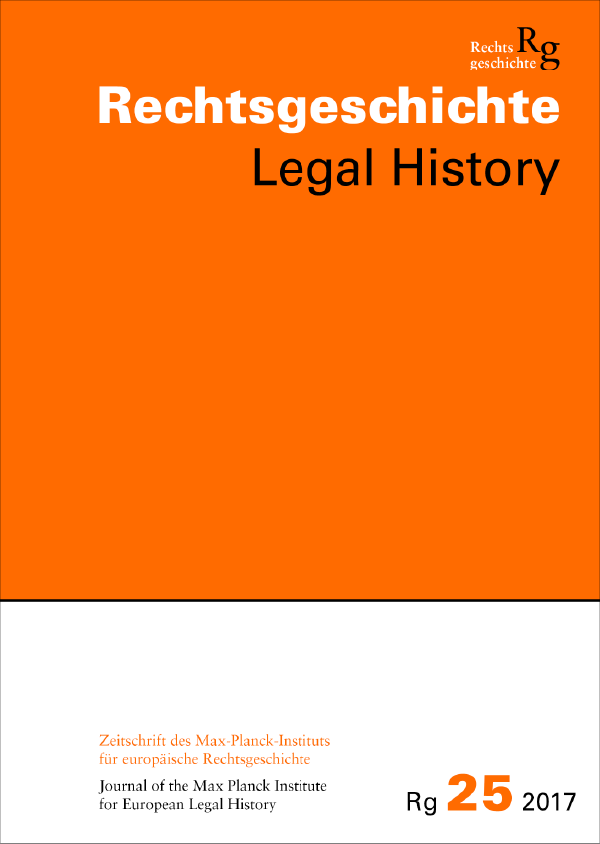Ehrengerichtliche Rechtsprechung im Kaiserreich und der Weimarer Republik
Multinormativität in einer mononormativen Rechtsordnung?
DOI:
https://doi.org/10.12946/rg25/138-150Schlagworte:
multinormativity, normative resources, courts of honor, non-state justice, professional interestsAbstract
The concept of »multinormativity« refers to the existence of various norms, not restricted to legal norms, and simultaneously to the relationship between these different norms. This relationship is dynamic; often norms arise from normative resources because other norms create the necessary prerequisites. The concept of »multinormativity« underlines that normativity takes validity to be a process, not static. In this dynamic understanding, validity is relative, and the balance between normative powers shifts. However, it is questionable whether this understanding of »multinormativity« is applicable to a »mononormative« legal order; that is, a legal order in which the monopoly of state law prevails and that does not tolerate any norms beyond its own in its regulatory area. In principle, such was the legal order of Germany in the late 19th and the early 20th centuries. This article examines how occupational courts of honor were integrated into this legal order, how the jurisdiction of these courts transformed the normative resource of honor into law and what relationships between this law and state law emerged.
Downloads
Veröffentlicht
Zitationsvorschlag
Ausgabe
Rubrik
Lizenz
Copyright (c) 2017 Autor/in

Dieses Werk steht unter einer Creative Commons Namensnennung - Nicht-kommerziell - Keine Bearbeitung 3.0 International -Lizenz.





